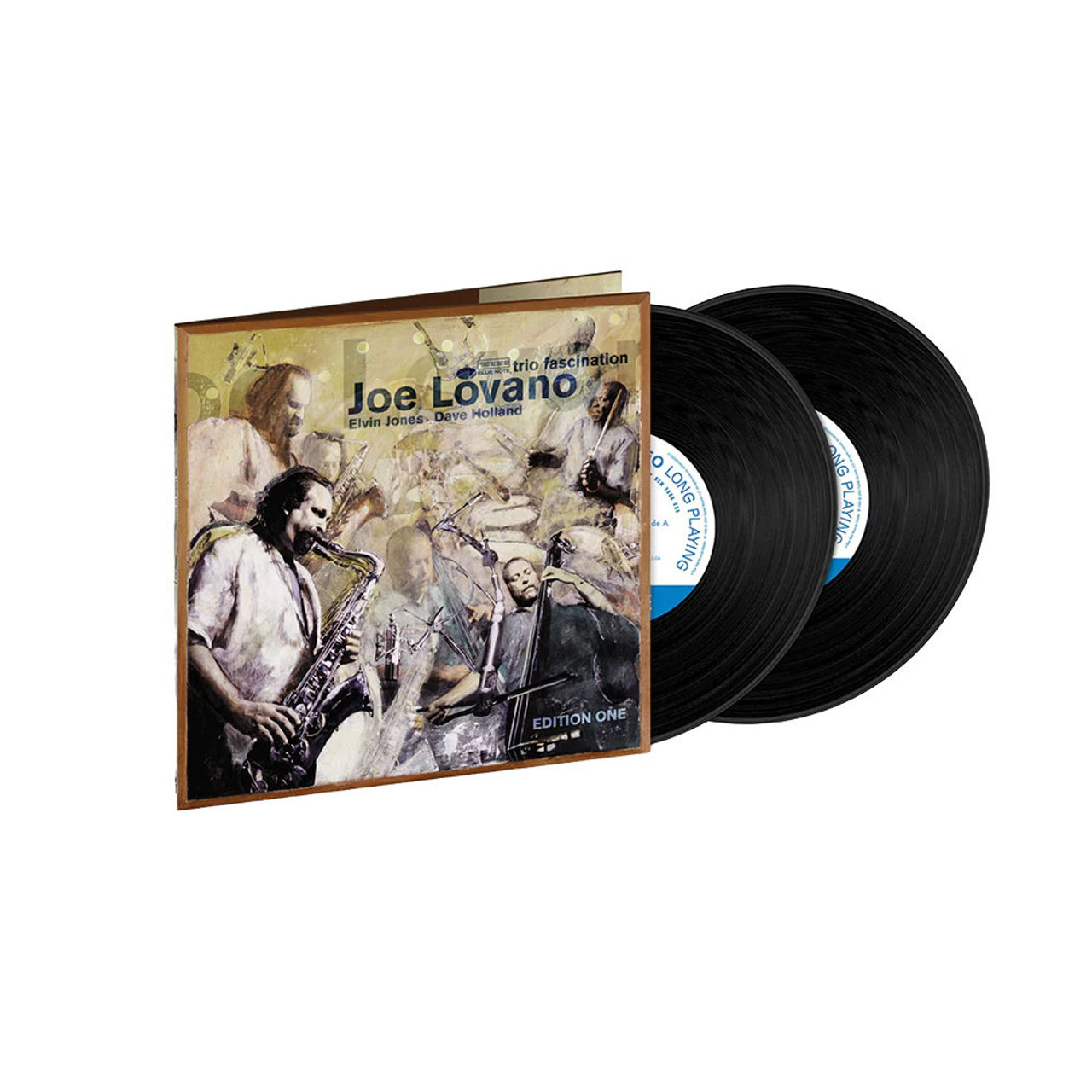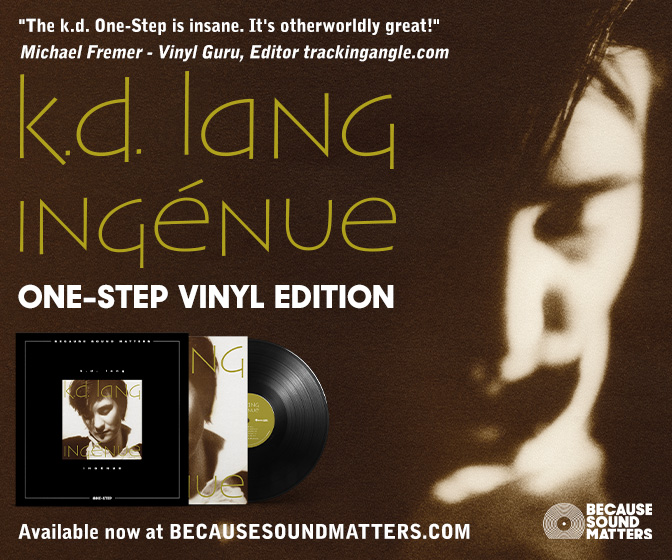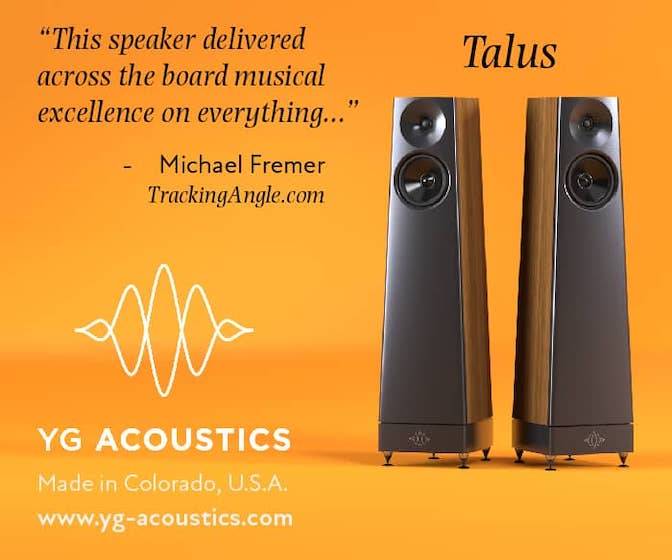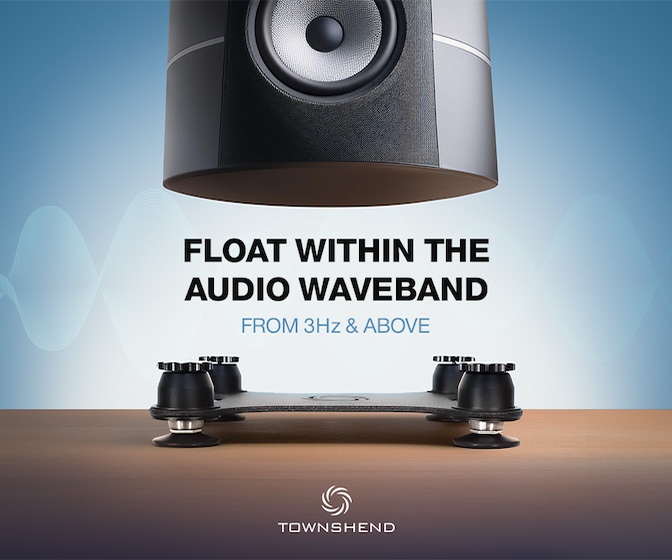Joe Lovano's Late '90s Trio Brought to New Life
"Trio Fascination," his analog wonder, on vinyl for the first time
Trio Fascination: Edition One—a 1997 piano-less trio session, newly mastered on two LPs as part of Blue Note’s Tone Poet series—is a magical album. First, the trio itself—Joe Lovano on various reeds, Dave Holland on bass, Elvin Jones on drums—was a one-time-only combo, the likes of which remains nearly unparalleled. Second, the music (all but one track composed by Lovano) is original, almost inexplainable, yet very accessible. Finally, the fact that this reissue exists on vinyl is a welcome fluke—a correction to a misalignment of historico-cultural forces.
This was Lovano’s 9th album for Blue Note, and, at age 44, he was testing a wide array of forms—albums of standards, show tunes, classic bop, or avant-garde, in duets, quartets (with and without piano), or big bands—riding them all with high-strung adventure, blowing his horns (usually tenor sax, but sometimes soprano, alto, or alto clarinet) with a husky tone and fleet fluency. He had delved into unconventional trios in the ’80s, on several albums with drummer Paul Motian and guitarist Bill Frisell, but this Blue Note date was influenced more by the borderline-free stretchings of Miles Davis’ Second Great Quintet of the mid-1960s and especially by the line-crossing quest by some of Miles’ sidemen—Herbie Hancock, Wayne Shorter, and Tony Williams (with a guest slot by Sam Rivers, a short-lived Milesian)—on the 1965 album, Spring.
In its ensemble, Spring was different—sax-piano-drums, as opposed to Trio Fascination’s sax-bass-drums, posing very different challenges: the bass-less trio omitting a time-keeper (especially since Williams dealt deeply in polyrhythms), the piano-less trio abandoning chordal roots, leaving the horn player to wander the wilderness without a guide or compass—which can be liberating but also terrifying.
But the two albums are similar in this sense (and here we get into why both are, as I put it in the lede, “magical”). Focus on any one of the musicians, and he seems to occupy the center of the action or going his own way, sometimes in a different direction, or at a different pace, from the other two. Yet sit back, take in the whole soundscape, and the three seem completely unified, a seamless whole, scaling improvisations as if they were written-through pieces that they’ve been playing together for years.
Really, I don’t quite know what’s going on here or how they did it.
Lovano’s bandmates were more than fit for the ride. Dave Holland, then 51, had played with a vast range of artists, from Hank Jones and Chick Corea to Anthony Braxton and Miles Davis (in his electric period). He could play anything, adapt to any setting, flit back and forth from one role to another without strain. Elvin Jones had been in John Coltrane’s “classic quartet" and, since then, had drummed, as leader or sideman, with just about every great jazzman you can think of. In this session, he was 70 years old, yet hadn’t lost a whit of vim or vigor. Most of all (something that had always been true), he could swing like crazy. He may well be the driving force of this trio, the grand master who fits the pieces together with the glue of forward motion.
Another thing: All three had played together before—not all together, but they came into Avatar Studios knowing what to expect. They never played as a trio again (a shame), but this was no blind accident.
Now for the album’s historical anomaly—which leads to its sound quality. It was recorded at a time when the top jazz engineers still often worked with analog tape, but LPs were said to be going the way of the Dodo bird. Which is to say: James Farber, one of the tops, laid down and mixed these tracks in analog—but they were mastered digitally for release on compact disc only. The Tone Poet release marks the first time the album has ever been on vinyl, and the grooves are spread out on two 180-gram discs, so that each of the four sides lasts between 15 and 17 minutes, leaving the center grooves uncrammed.
The CD (which I’ve owned for years and recently listened to again, for comparison’s purpose) was dry, two-dimensional, compressed. The LP—remastered by Kevin Gray from the original tapes—is airy and open, full of depth, Jones’ cymbals shimmering and Holland’s bass woody and plucked. There’s breathiness and color to Lovano’s horn, though I would have preferred him more forward in the mix; there seems to be a little more reverb than necessary. Still, this is a minor flaw in the restoration of a vital album.
PS: A few years ago, Lovano left Blue Note for ECM, where he has recorded albums with Marilyn Crispell, a pianist of avant-garde leaning, that are fascinating in their own way but may not be to everyone’s taste. He has also co-led a sextet called Soundprints, with trumpeter Dave Douglas, devoted to the music and spirit of Wayne Shorter—exciting stuff, more structured. Last night (February 21, 2024), I saw him at the Village Vanguard, leading a new quartet that includes the awesomely agile guitarist Julian Lage, and it was thrilling, seething some of the spirited freedom of Trio Fascination. The group is touring now and will be recording soon. Catch them while you can; the album has been released and is available.












































